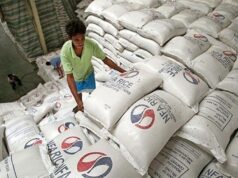INFLATION will likely pick up in the near term due to a recovery in oil prices after oil-exporting countries reduced their output of crude oil, but will remain favorable throughout the year, the Finance department said.
“In the foreseeable near term, the general price increase may be above 2%, as indicated by above 2% core inflation, [which is] an indicator of inflation outlook,” Finance Undersecretary and chief economist Gil S. Beltran was quoted as saying in a statement.
Core inflation — which strips out volatile items like food and energy — fell 1.9% at end-2016 compared to 2% recorded in 2015.
While headline inflation increased to 1.8% in 2016 from 1.4% in 2015, it remained below the government’s target range of 2-4%.
The inter-agency Development Budget Coordination Committee (DBCC) in its latest meeting, said it will maintain the 2-4% target until 2020.
Mr. Beltran added that the normalization of world oil prices will continue to contribute to the uptick in inflation.
Mr. Beltran said inflation will be manageable as the central bank has “significant credibility” in setting price expectations, aided by its monetary levers.
“The country’s inflation rate remains favorable. [The] government’s prudent fiscal management will continue to help maintain macro-economic stability in the country, which in turn fosters a conducive environment for generating investments,” Mr. Beltran said.
“Food production is crucial to maintaining this favorable macroeconomic scenario. Support to production through infrastructure development, credit availability and insurance coverage is necessary to sustain this,” he added.
In the past two years, the food commodity group accounted for 1.1 percentage points of the inflation rate — the highest among the commodity groups.
However, according to latest data, rice price growth slowed to 0.3% as of end-2016, from 1.7% in 2015.
“Rice inflation has dropped due to production recovery and timely importation,” said Mr. Beltran in the same statement. “Programs to enhance vegetable farming are needed to temper the double-digit inflation in this sector which has continued for more than a year now.” — Janine Marie D. Soliman



